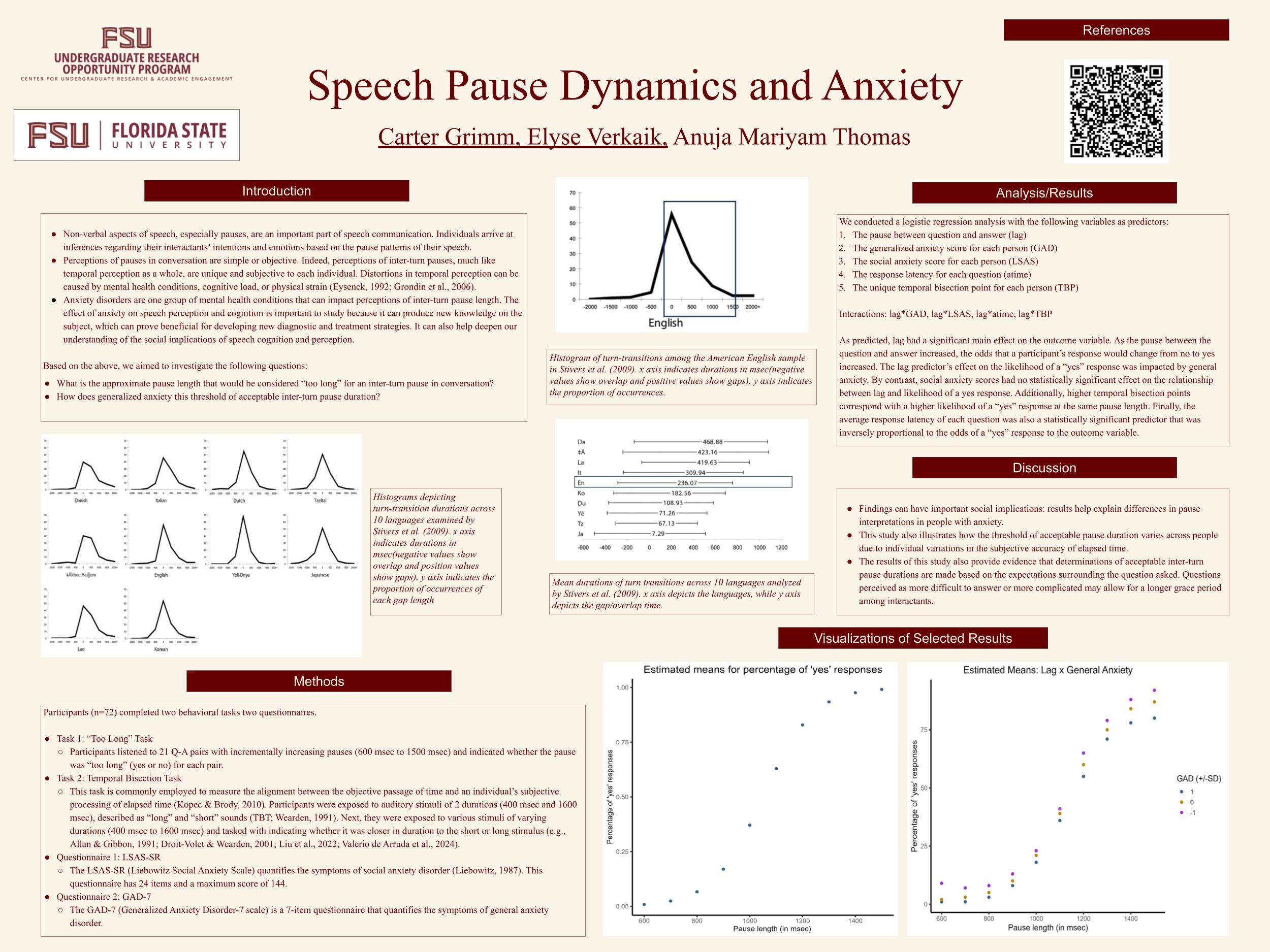Research Symposium
25th annual Undergraduate Research Symposium, April 1, 2025
Elyse Verkaik Poster Session 1: 9:30 am - 10:30 am / Poster #72

BIO
My name is Elyse Verkaik. I am from Eustis, Florida, and I am a second year Behavioral Neuroscience major on a premed track at Florida State University. My goal is to pursue a career in medicine, with a particular interest in neuroscience and mental health. I’m passionate about contributing to advancements in clinical research or psychiatry in the future. Outside my work in research, I am a member of the Medical Response Unit on campus, where we volunteer as first responders on campus.
Speech Pause Dynamics and Anxiety
Authors: Elyse Verkaik, Anuja Mariyam ThomasStudent Major: Behavioral Neuroscience
Mentor: Anuja Mariyam Thomas
Mentor's Department: Psychology Mentor's College: Arts and Sciences Co-Presenters: Carter Grimm
Abstract
The distribution and lengths of pauses in speech can be a source of insight into the rapport and relationship between the speakers. Pause dynamics can also provide clues to an individual’s state of mind. Because pauses in conversation are so meaningfully rich, speakers use these pauses as social cues in their everyday interactions. For example, violating implicit rules of pause dynamics by waiting too long to respond can harm conversational outcomes. But how long is too long? We present work that addresses this question. Participants were presented with audio recordings of question-answer turn exchanges, each featuring varying pause durations. Participants were asked to indicate whether they believed that the respondent waited too long to answer the question. Participants also completed anxiety questionnaires and a temporal bisection task. This study determined that pauses of approximately 1000 milliseconds are considered “too long”. This finding is consistent with previous research. The results of this study also provide preliminary evidence that intrapersonal characteristics such as anxiety levels as well as item characteristics such as question complexity and ease of retrieval can alter this threshold. These results are consistent with the literature review we conducted regarding the general mechanisms of speech cognition and speech pause perception. Overall, the results of the literature review led to the expectation that dopaminergic disruptions should lead to disruptions in temporal processing.
Keywords: Psychology, cognition, anxiety, speech, and pauses.


